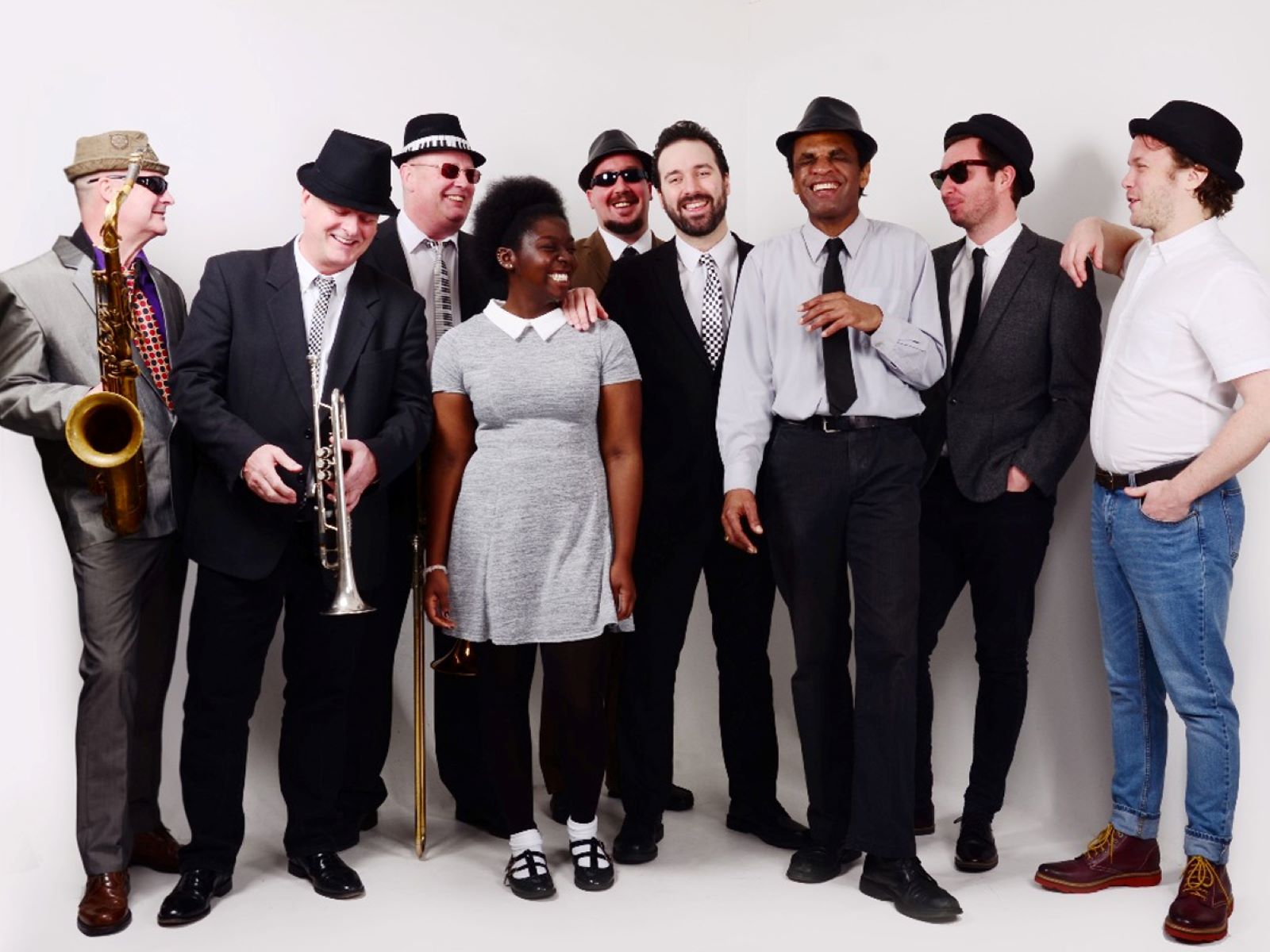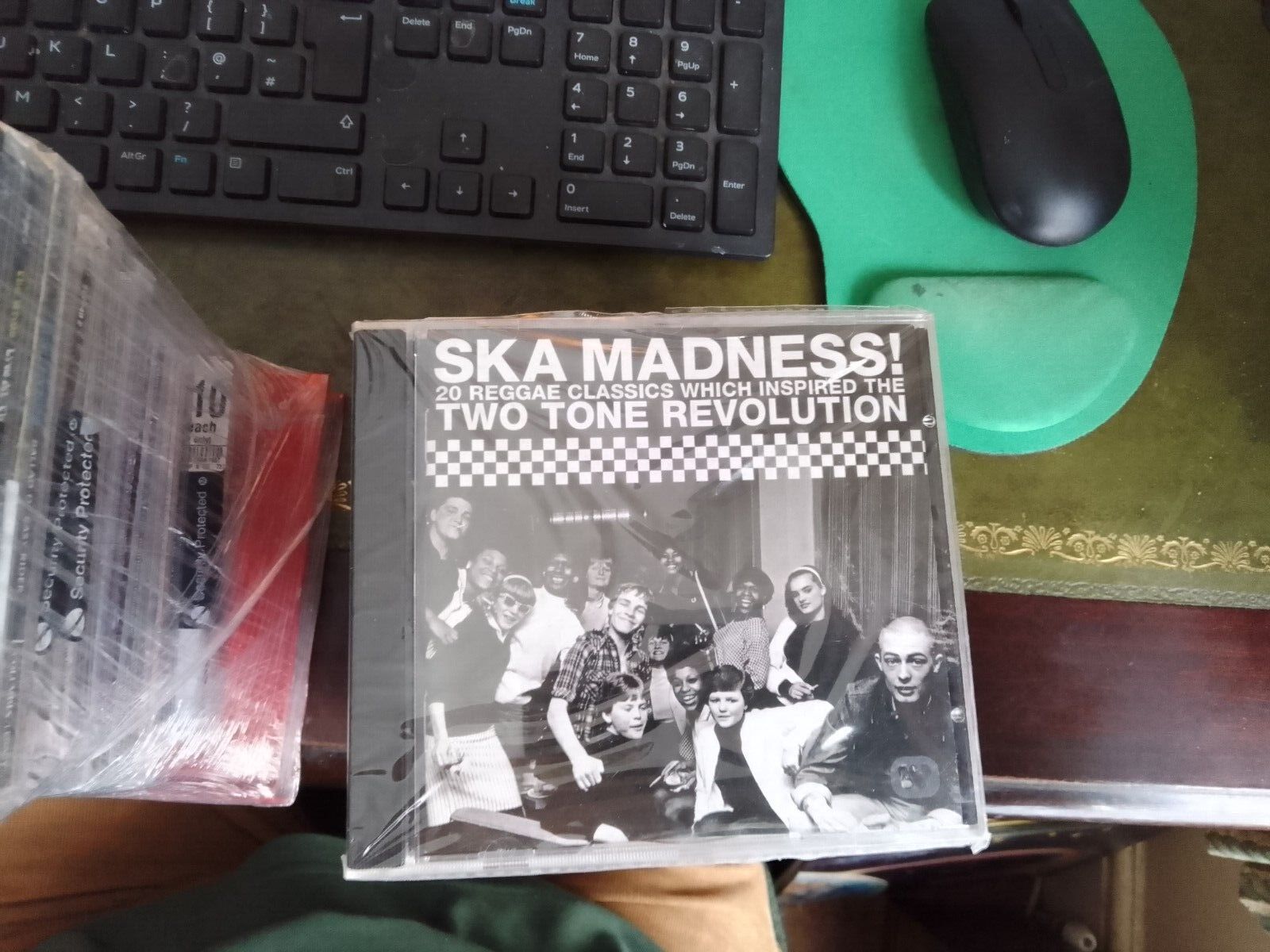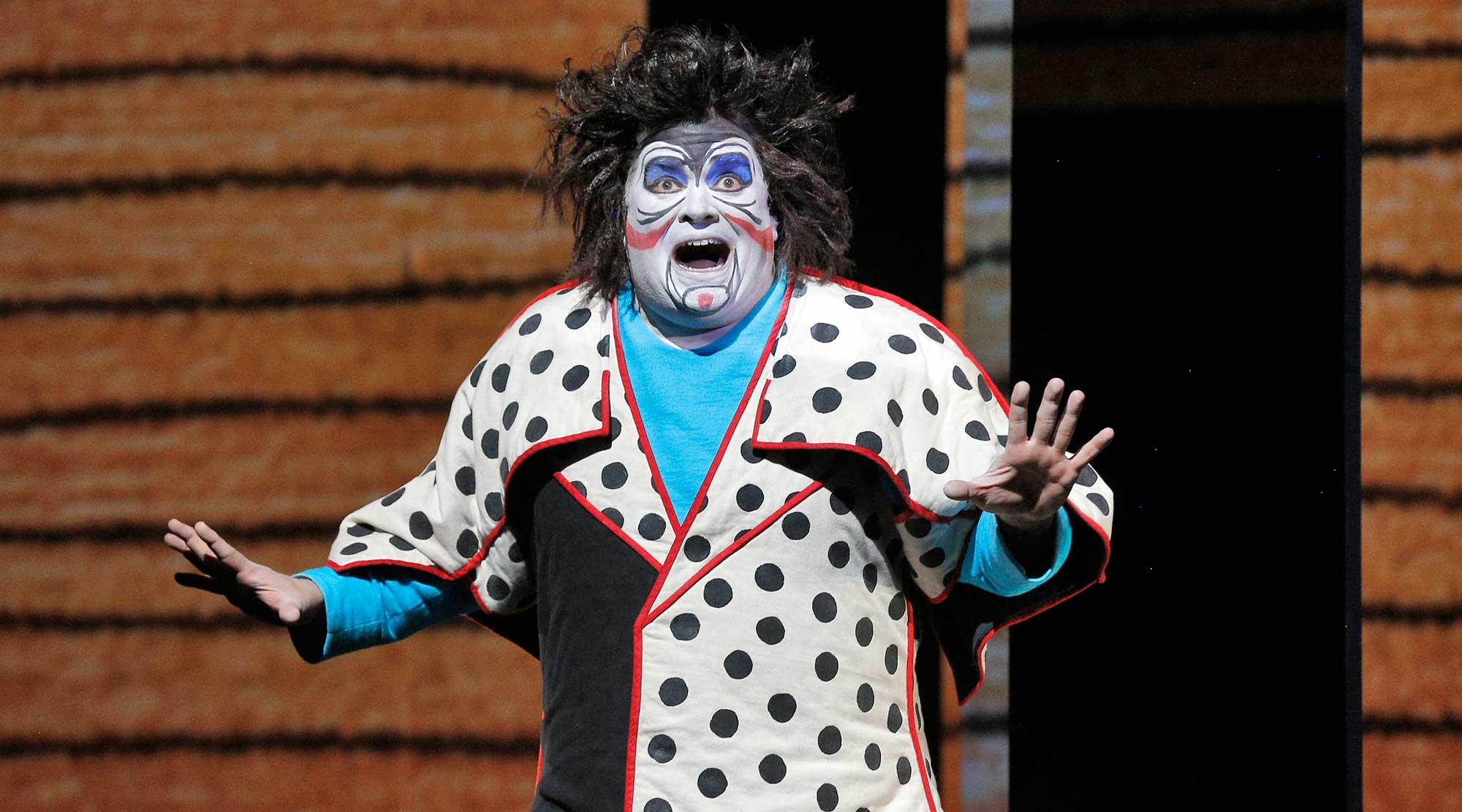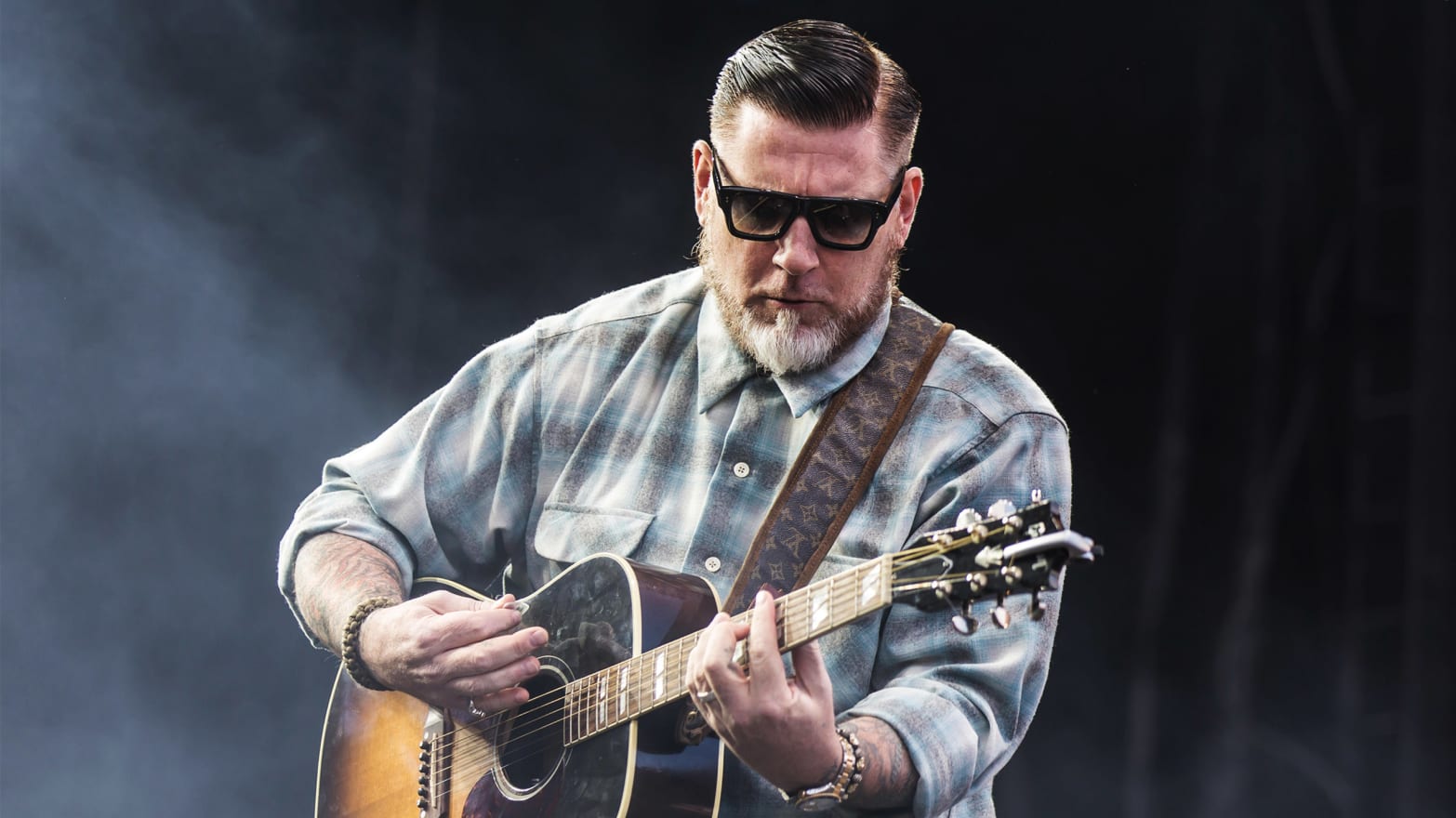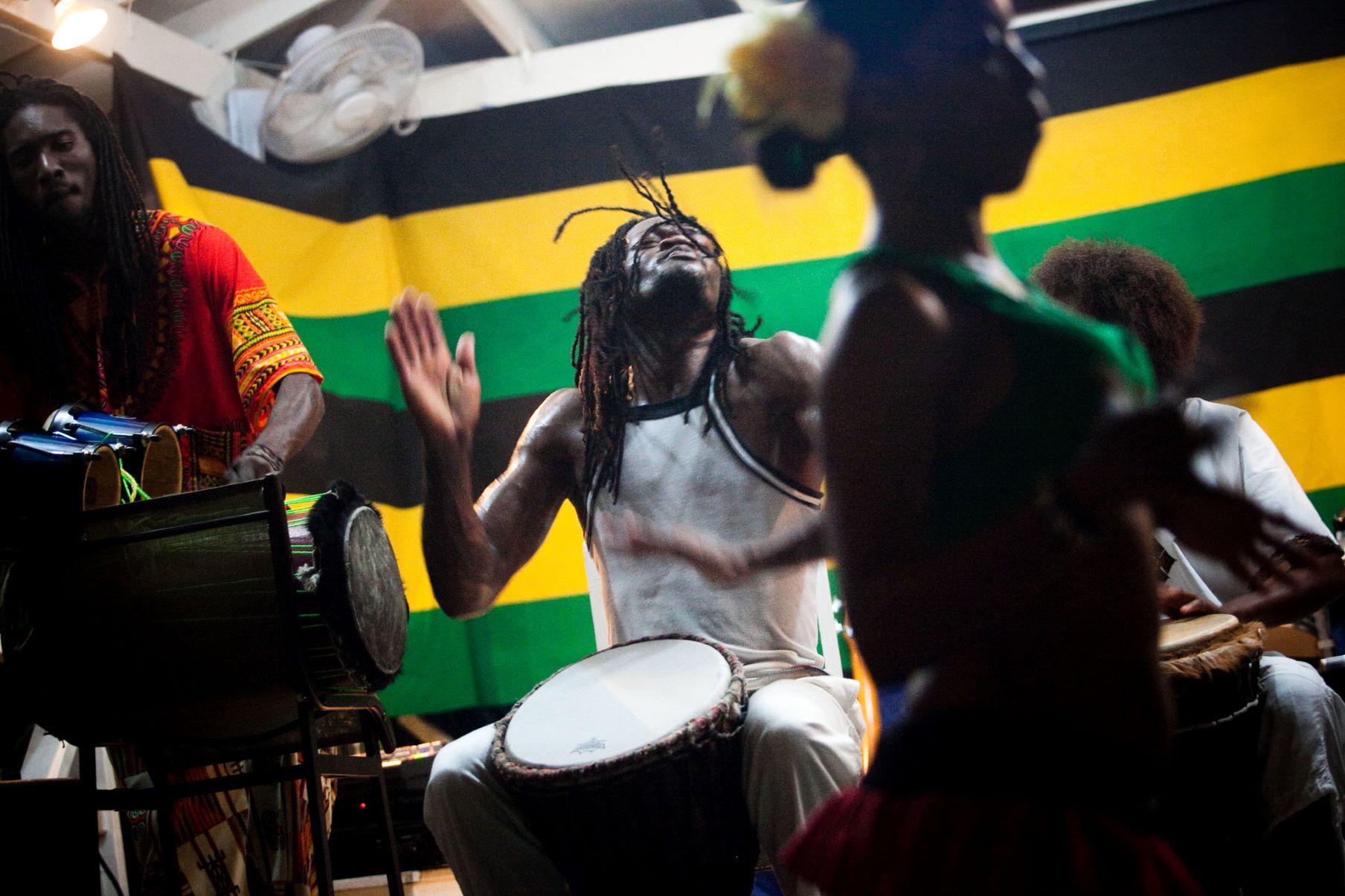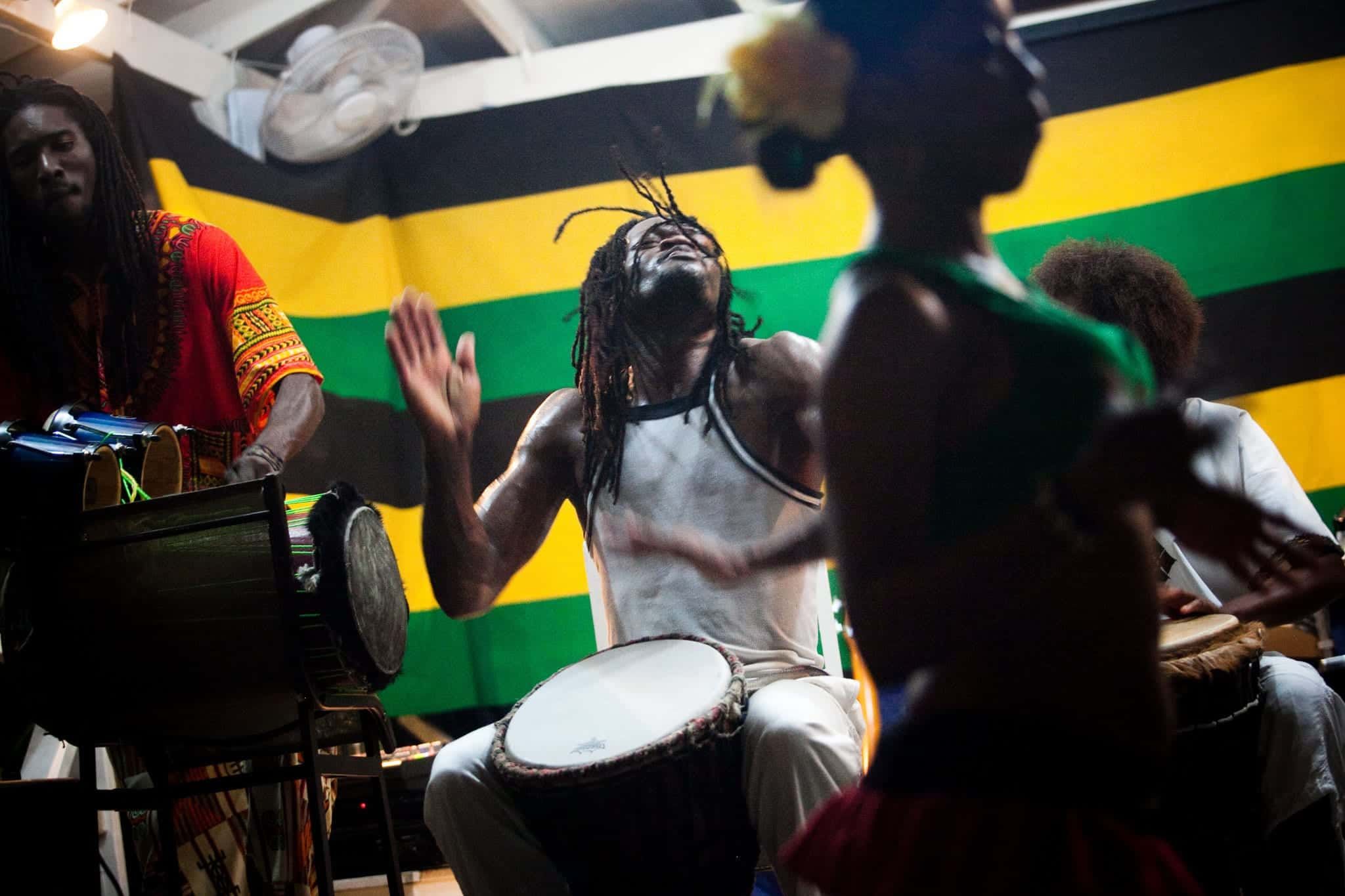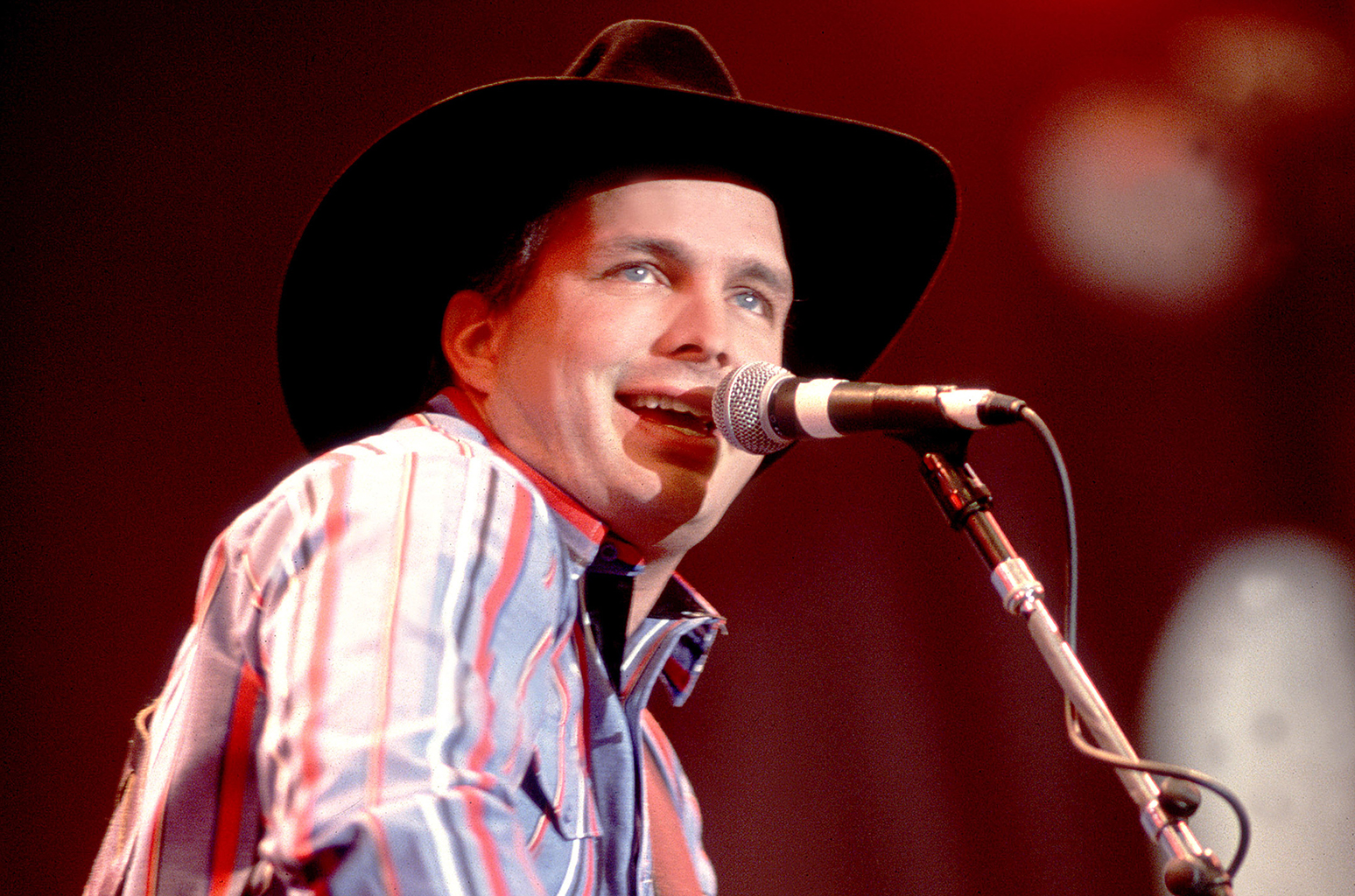Home>Genres>Reggae>Which Caribbean Country Is Known For Its Reggae Music?
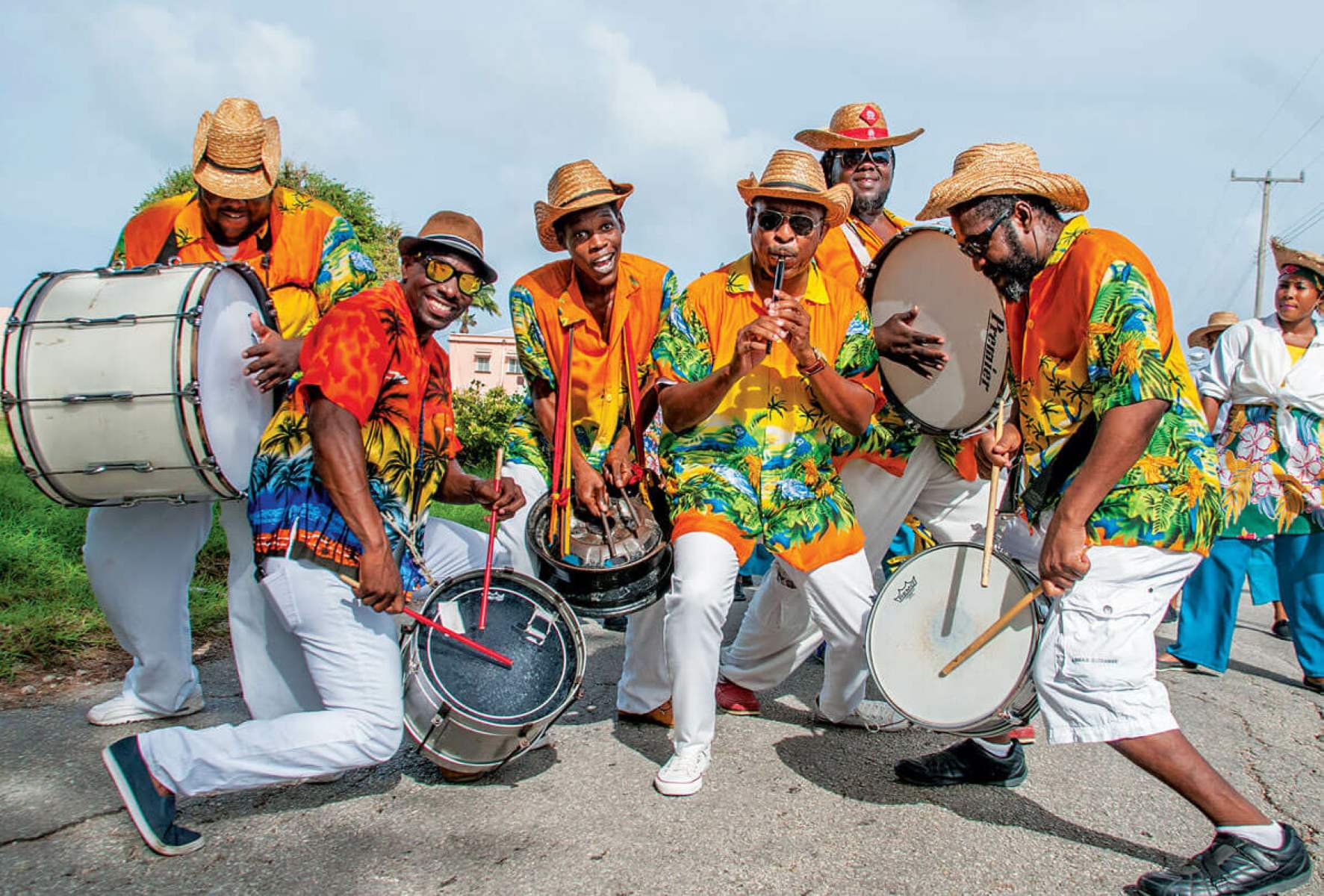

Reggae
Which Caribbean Country Is Known For Its Reggae Music?
Modified: January 22, 2024
Discover the Caribbean country renowned for its vibrant reggae music scene. Immerse yourself in the rhythm and culture of this musical paradise.
(Many of the links in this article redirect to a specific reviewed product. Your purchase of these products through affiliate links helps to generate commission for AudioLover.com, at no extra cost. Learn more)
Table of Contents
- Introduction
- History of Reggae Music
- Roots and Origins of Reggae
- Influence of Jamaican Music on Reggae
- Caribbean Countries and Reggae Music
- Jamaica: The Home of Reggae
- Bob Marley and the Impact of Jamaican Reggae
- Popular Reggae Artists from Jamaica
- Other Caribbean Countries and Their Contribution to Reggae
- Trinidad and Tobago: Soca and Reggae Fusion
- Barbados: Reggae Influence in Bajan Music
- Bahamas: The Growing Reggae Scene
- St. Kitts and Nevis: Reggae Festivals and Events
- Conclusion
Introduction
When it comes to iconic music genres originating from the Caribbean, reggae undoubtedly takes center stage. Known for its distinctive rhythm, soulful vocals, and conscious lyrics, reggae has captivated audiences worldwide, uniting people through its powerful message of love, unity, and social justice. This article will explore the rich history and roots of reggae music, with a particular focus on the Caribbean country that is renowned as its birthplace.
Reggae music emerged in the late 1960s in Jamaica, a Caribbean nation with a vibrant cultural identity and a deep musical heritage. Its origins can be traced back to earlier Jamaican music styles, such as ska and rocksteady, which laid the foundation for the development of reggae. Drawing upon influences from African, Caribbean, and American musical traditions, reggae music became a vehicle for expressing the struggles and aspirations of the Jamaican people.
Throughout its history, reggae has evolved and diversified, giving rise to various sub-genres such as roots reggae, dub, dancehall, and reggae fusion. Its global popularity grew exponentially in the 1970s with the rise of legendary musician and activist, Bob Marley. Marley’s music not only propelled reggae to international acclaim but also cemented Jamaica as the epicenter of the genre.
While Jamaica is undeniably the birthplace of reggae, its influence has spread throughout the Caribbean, with different countries embracing and incorporating reggae into their own unique musical traditions. This article will explore some of these countries and their contributions to the reggae music scene.
So, join us on this musical journey through the Caribbean as we dive into the history, significance, and diverse manifestations of reggae music. From Jamaica to Trinidad and Tobago, and from Barbados to the Bahamas, we will uncover how each country has made its mark in the world of reggae, solidifying its place as one of the most beloved and influential music genres of all time.
History of Reggae Music
The history of reggae music is deeply rooted in the cultural and social context of Jamaica. It emerged in the late 1960s as a fusion of various musical styles, including ska and rocksteady, which were popular in Jamaica during that time.
Ska, with its upbeat and lively tempo, laid the foundation for reggae’s rhythmic patterns. It incorporated elements of mento, a traditional Jamaican folk music genre, and American R&B. Ska gained international recognition with hits like “My Boy Lollipop” by Millie Small.
As the 1960s progressed, rocksteady emerged as a slower and more soulful style of music, characterized by its heavy basslines and intricate harmonies. Artists like The Heptones and The Paragons showcased the expressive nature of rocksteady, influencing the development of reggae.
Reggae evolved from rocksteady, taking its distinctive rhythms and infusing them with a newfound social consciousness. The genre became a platform for addressing social and political issues, reflecting the struggles and aspirations of the Jamaican people. Songs like “Get Up, Stand Up” and “No Woman, No Cry” by Bob Marley and The Wailers exemplify reggae’s powerful lyrical messaging.
One of the key figures in the rise of reggae music was the iconic musician Bob Marley. With his band, The Wailers, Marley introduced reggae music to global audiences, spreading the messages of love, unity, and social justice. His album, “Exodus,” became a landmark release and solidified reggae’s international appeal.
Reggae also owes its distinct sound to the innovation of producers like Lee “Scratch” Perry and King Tubby, who developed the technique of dub. Dub remixes stripped down original tracks, emphasizing basslines and creating echo and delay effects, contributing to the genre’s unique sonic landscape.
In the 1970s and 1980s, reggae transformed further with the rise of dancehall music. Dancehall incorporated electronic elements and featured fast-paced, rhythmic patterns perfectly suited for parties and dancefloors. Artists like Shabba Ranks and Buju Banton propelled dancehall into the mainstream.
Reggae music continues to evolve and diversify to this day, with various sub-genres and fusions incorporating influences from hip-hop, pop, and electronic music. It remains a powerful medium for expressing social commentary and voicing the experiences of marginalized communities.
The history of reggae music is a testament to the resilience and creativity of its artists, who have used their music as a tool for cultural expression, activism, and empowerment. From its humble beginnings in Jamaica to its global reach, reggae music stands as a symbol of unity, love, and resistance.
Roots and Origins of Reggae
The roots of reggae music can be traced back to the cultural melting pot of Jamaica, a Caribbean island that has been influenced by a rich tapestry of musical traditions. Reggae, as we know it today, has deep connections to earlier Jamaican music genres such as ska, rocksteady, and mento.
Mento, a form of Jamaican folk music, played a significant role in shaping the sound of reggae. It originated in the late 19th century and blended African and European musical elements. Mento often featured acoustic instruments like banjo, guitar, and maracas, with lyrics addressing everyday life and social issues.
In the 1950s, ska emerged as a popular music style in Jamaica. The upbeat tempo, offbeat guitar accents, and horn sections gave ska its signature sound. Pioneering ska artists like The Skatalites and Prince Buster brought this lively genre to the forefront, laying the foundation for what would become reggae.
Rocksteady followed ska in the mid-1960s, slowing down the pace and focusing more on soulful vocals and basslines. The smoother, more relaxed feel of rocksteady, exemplified by artists like Alton Ellis and The Techniques, set the stage for the development of reggae.
The word “reggae” itself is said to have derived from the term “rege-rege,” which meant ‘rags,’ ‘ragged clothing,’ or ‘a quarrel.’ The usage of the term in Jamaican colloquial speech reflected the social and political unrest of the time. It is believed that the term was first used in a song title with the release of Toots and The Maytals’ single, “Do the Reggay” in 1968.
Reggae music truly flourished in the late 1960s and early 1970s, with artists like Bob Marley and The Wailers, Peter Tosh, and Bunny Wailer at the forefront. These musicians not only popularized reggae but also infused it with a deep spiritual and political consciousness.
The rhythmic foundation of reggae is characterized by a heavy emphasis on the offbeat, also known as “skank.” Guitarists and keyboard players typically play chords on the second and fourth beats of the bar, creating a distinctive rhythmic pattern that is instantly recognizable.
Reggae also incorporates elements of African drumming traditions, particularly the use of the bass drum and snare to create a solid groove. The bassline, often played by a prominent electric bass guitar, adds depth and drive to the music, while the syncopated rhythms keep the listener engaged.
Another key ingredient in the reggae sound is the use of “riddims,” which are instrumental tracks that form the foundation for multiple songs. Producers and musicians would create a riddim, and various artists would record their own vocals over the rhythm, resulting in different versions of the same instrumental track.
The powerful and thought-provoking lyrics of reggae songs have always been an essential part of the genre. From addressing social and political issues to spreading messages of love and spirituality, reggae has continuously served as a voice for the marginalized and oppressed.
The roots and origins of reggae music run deep, intertwining Jamaican folk traditions, African influences, and the soulful sounds of the Caribbean. It is the unique blend of musical styles, social consciousness, and rhythmic innovation that has made reggae a beloved genre, resonating with people across the globe.
Influence of Jamaican Music on Reggae
Jamaican music has had a profound influence on the development and evolution of reggae. It is from the rich musical heritage of Jamaica that reggae draws its rhythmic patterns, vocal styles, and lyrical themes. The various genres that preceded reggae, such as ska, rocksteady, and mento, all played a crucial role in shaping the sound and identity of reggae music.
Ska, which emerged in the 1950s, brought a vibrant and energetic sound to the Jamaican music scene. Influenced by jazz, R&B, and mento, ska featured lively guitar and piano interplay, horn sections, and a strong emphasis on the offbeat. Ska’s infectious rhythms and upbeat tempo laid the foundation for reggae’s distinctive groove.
Rocksteady, which followed ska in the mid-1960s, slowed down the pace and emphasized soulful vocals and intricate harmonies. With its smooth, laid-back sound, rocksteady provided a platform for artists to convey heartfelt emotions and introspective lyrics. This soulful quality and focus on vocal expression became a defining characteristic of reggae.
Mento, the traditional Jamaican folk music, also left its mark on reggae. Mento, with its acoustic instruments and lyrical storytelling, showcased the rich cultural heritage of the island. The use of banjos, guitars, and maracas in mento music influenced the instrumental arrangements and overall feel of reggae music.
The influence of African drumming traditions on Jamaican music cannot be understated. The importance of rhythm and percussion in reggae can be traced back to the drumming styles brought to the island by African slaves. The use of syncopation, polyrhythms, and the distinctive bass drum and snare patterns all contribute to the rhythmic complexity that defines reggae.
Beyond the instrumental and rhythmic elements, Jamaican music has also played a significant role in shaping the lyrical themes and subject matter of reggae. From the social commentary of artists like Bob Marley and Peter Tosh to the conscious and spiritual lyrics found throughout reggae’s history, the music reflects the experiences, struggles, and aspirations of the Jamaican people.
Reggae’s influence extends beyond its own shores, with its impact felt in various music scenes around the world. The infectious rhythms, laid-back vibe, and conscious messaging of reggae have been adopted and incorporated by artists across genres, from pop and rock to hip-hop and electronic music.
The influence of Jamaican music on reggae is a testament to the creativity and resilience of the Jamaican people and their ability to transform their cultural heritage into a globally recognized sound. The rhythms, melodies, and spirit of Jamaica resonate through reggae, creating a powerful and enduring musical legacy that continues to captivate and inspire audiences worldwide.
Caribbean Countries and Reggae Music
While reggae music is most closely associated with Jamaica, its influence and presence have extended throughout the Caribbean region. Various Caribbean countries have embraced reggae and added their own unique flavors to the genre, creating a vibrant and diverse reggae music scene beyond Jamaica’s borders.
Trinidad and Tobago, known for its vibrant carnival culture, has blended its own genre, soca, with reggae to create a fusion sound. Soca, a lively and energetic style of music, incorporates elements of calypso, soul, and reggae. The combination of the infectious rhythms of soca and the laid-back vibes of reggae has resulted in a unique and exciting music scene in Trinidad and Tobago.
In Barbados, reggae has found a prominent place in its music landscape, alongside its native genres like soca and calypso. The island’s artists have infused reggae with Bajan influences, creating a distinct Barbadian flavor within the genre. Artists such as Jimmy Cliff and Barbadian-born Rihanna have contributed to the growth of reggae’s popularity in Barbados and globally.
The Bahamas, known for its pristine beaches and vibrant culture, has seen a growing reggae music scene in recent years. Bahamian artists have embraced reggae and infused it with their own traditional music styles, such as Junkanoo, creating a unique blend of sounds. The Bahamas has become a hotspot for reggae festivals and events, drawing artists and fans from around the world.
St. Kitts and Nevis, a small twin-island nation in the Caribbean, has also made its mark on the reggae music scene. The country hosts an annual reggae festival called “Music Festival Addict,” which attracts both local and international reggae artists. The festival has helped to promote both local talent and the love of reggae music within the community.
These are just a few examples of Caribbean countries that have embraced reggae music and added their own artistic touch to the genre. The influence of reggae extends beyond Jamaica, and each country brings its own unique cultural flavors, rhythms, and lyrical themes to the music.
Reggae music continues to evolve and thrive in the Caribbean region, with artists from different countries collaborating and experimenting with various styles. The genre’s ability to reflect and incorporate the diverse cultures and influences of the Caribbean has contributed to its longevity and global popularity.
As we explore the reggae music scene across the Caribbean, we discover the rich tapestry of sounds, rhythms, and lyrical expressions that make each country’s contribution to reggae truly special. Whether it’s the fusion of soca and reggae in Trinidad and Tobago or the incorporation of Bajan traditions in Barbados, reggae music in the Caribbean remains a vibrant expression of culture and a testament to the genre’s enduring legacy.
Jamaica: The Home of Reggae
When we think of reggae music, one country immediately comes to mind – Jamaica. Known as the birthplace of reggae, Jamaica has played an instrumental role in shaping the genre and establishing it as a global phenomenon.
Jamaica’s rich cultural heritage, history of social and political struggles, and vibrant musical traditions provided the fertile ground on which reggae took root and flourished. From the streets of Kingston to the world stage, Jamaica has been the driving force behind the development and promotion of reggae music.
The fusion of various musical styles and influences in Jamaica, including ska, rocksteady, mento, and R&B, laid the foundation for the emergence of reggae in the late 1960s. It was during this time that artists like Bob Marley, Peter Tosh, and Bunny Wailer, collectively known as The Wailers, began to captivate audiences with their captivating sound and profound messages.
Reggae music became a universal language that resonated deeply with people across the world, transcending cultural and linguistic barriers. The laid-back rhythms, powerful vocals, and socially conscious lyrics of reggae struck a chord with listeners, touching on themes of love, spirituality, social justice, and the struggles of the marginalized.
Jamaica’s music industry played a significant role in promoting reggae to a global audience. The iconic Studio One, founded by Clement “Coxsone” Dodd, became a breeding ground for talent and a studio where many reggae classics were recorded. Other legendary producers like Lee “Scratch” Perry and King Tubby further shaped the sound of reggae through their innovative production techniques.
Reggae not only had a profound impact on the music scene but also served as a vehicle for social and political activism in Jamaica. Artists like Bob Marley used their music as a platform to advocate for peace, unity, and a better future for their country. The iconic “One Love” philosophy became a symbol of hope and solidarity.
Today, Jamaica remains a pilgrimage destination for reggae enthusiasts from around the world. The island is home to the Bob Marley Museum in Kingston, where visitors can immerse themselves in the life and legacy of the legendary musician. Additionally, popular reggae festivals like Reggae Sumfest and Rebel Salute continue to attract both local and international reggae artists and fans.
Reggae’s impact on Jamaican culture extends beyond just the music itself. The distinctive fashion, the Rastafarian movement, and the Jamaican Patois dialect all intertwine with reggae to form a unique cultural tapestry that represents the spirit of Jamaica.
Jamaica’s influence on reggae cannot be overstated. The island’s vibrant culture, talented musicians, and their unwavering commitment to social change have propelled reggae onto the world stage. Jamaica will forever hold a special place in the hearts of reggae enthusiasts as the home of this extraordinary genre that continues to inspire and uplift millions of people worldwide.
Bob Marley and the Impact of Jamaican Reggae
When discussing the impact of Jamaican reggae, one name stands out above all others – Bob Marley. Regarded as a global icon and music legend, Bob Marley played a pivotal role in popularizing reggae music and bringing it to the international stage.
Bob Marley, along with his band, The Wailers, crafted a unique sound that fused reggae with elements of rock, soul, and R&B. Their music had a profound impact, not only on the reggae genre but also on popular music as a whole.
Marley’s songs were a powerful blend of captivating melodies, intricate harmonies, and socially conscious lyrics. He used his music as a platform to address social and political issues, advocating for peace, love, and the empowerment of the oppressed. Songs like “Get Up, Stand Up” and “Redemption Song” became anthems of resistance and hope, echoing the sentiments of marginalized communities worldwide.
Bob Marley’s distinct vocal style and charismatic stage presence captivated audiences around the globe. His music spoke to people from all walks of life, transcending cultural and linguistic boundaries. Marley’s message of unity and social justice resonated deeply, making him a powerful voice for the voiceless and an ambassador for reggae music.
One of Marley’s greatest contributions was his ability to bring reggae to the mainstream, putting Jamaica and the genre on the global music map. His album “Exodus” became an international sensation, solidifying reggae’s status as a legitimate and influential genre. Tracks like “One Love,” “Jammin’,” and “Is This Love” became international hits, introducing reggae to a broad audience and paving the way for future reggae artists.
Marley’s impact extended beyond the music industry. He was an advocate for Rastafarianism, a spiritual movement deeply rooted in Jamaican culture. Marley’s iconic image, with his long dreadlocks and captivating stage presence, became synonymous with Rastafarian symbolism and the reggae movement. Through his music and persona, Marley inspired a generation to embrace a message of love, spirituality, and social change.
Even after his passing in 1981, Bob Marley’s influence and legacy continue to thrive. His music remains timeless, inspiring new generations of musicians and activists. Marley’s album “Legend,” a compilation of his greatest hits, consistently ranks among the best-selling reggae albums of all time.
Today, Bob Marley’s impact can be seen and felt in countless reggae artists who strive to carry on his legacy. His words and music have become a guiding light for those seeking social justice, love, and unity through reggae music.
The impact of Bob Marley and his music goes far beyond the confines of Jamaica. Through his artistry, charisma, and passion, he lifted reggae music to unprecedented heights, making it a universally recognized genre. Bob Marley’s contributions to reggae and his enduring legacy solidify his place as a global icon and a symbol of the healing and transformative power of music.
Popular Reggae Artists from Jamaica
Jamaica, the birthplace of reggae music, has given rise to numerous talented and influential artists who have made a significant impact on the genre’s global popularity. These artists have not only shaped the sound of reggae but also played a crucial role in spreading its powerful messages of love, unity, and social justice. Here are a few popular reggae artists from Jamaica who have left an indelible mark on the world of music:
1. Bob Marley: Known as the “King of Reggae,” Bob Marley is arguably the most iconic reggae artist of all time. His soul-stirring voice, profound lyrics, and undeniable stage presence propelled him to international fame. Together with his band, The Wailers, Marley delivered timeless classics such as “No Woman, No Cry,” “One Love,” and “Redemption Song.”
2. Jimmy Cliff: Jimmy Cliff’s contributions to reggae music have been immense. With an energetic and soulful voice, he brought reggae to a mainstream audience through hits like “Many Rivers to Cross” and “The Harder They Come.” Cliff’s charismatic performances and inspirational lyrics have solidified his status as a reggae icon.
3. Peter Tosh: A founding member of The Wailers, Peter Tosh was known for his strong vocals and passionate advocacy for social justice. With powerful tracks like “Legalize It” and “Equal Rights,” Tosh fearlessly tackled political issues, pushing boundaries and fighting for equality throughout his musical career.
4. Toots and The Maytals: Led by the incomparable Toots Hibbert, Toots and The Maytals were pioneers of reggae and ska music. Their infectious energy and soulful sound blended elements of gospel, R&B, and reggae. Hits like “54-46 That’s My Number” and “Pressure Drop” solidified their place in reggae history.
5. Dennis Brown: Known as the “Crown Prince of Reggae,” Dennis Brown possessed an unmatched vocal prowess and lyrical depth. His smooth and soulful voice captivated audiences, earning him hits like “Money in My Pocket” and “Revolution.” Brown’s contributions to reggae made him one of Jamaica’s most celebrated artists.
6. Chronixx: Representing the younger generation of reggae artists, Chronixx has emerged as a force to be reckoned with. His soulful vocals, conscious lyrics, and modern production have garnered critical acclaim and global recognition. Chronixx’s standout tracks include “Here Comes Trouble” and “Skankin’ Sweet.”
7. Burning Spear: With his distinctive voice and powerful stage presence, Burning Spear (Winston Rodney) has been a driving force in roots reggae. Known for his spiritually charged lyrics and captivating performances, he has delivered powerful messages of resistance and African pride through tracks like “Marcus Garvey” and “Slavery Days.”
These artists represent just a fraction of the incredible talent that Jamaica has produced on its musical landscape. Their contributions to reggae have not only shaped the genre but have also influenced countless artists worldwide, making reggae music an enduring cultural phenomenon and a universal language of love, freedom, and resilience.
Other Caribbean Countries and Their Contribution to Reggae
While Jamaica is undeniably the birthplace of reggae, other Caribbean countries have also made significant contributions to the genre, infusing it with their own unique cultural flavors and musical styles. Let’s explore the reggae scenes in some of these countries and the artists who have left an indelible mark on the music:
Trinidad and Tobago: Although Trinidad and Tobago is known for its vibrant soca and calypso music, reggae has found a place in its musical landscape as well. Artists like David Rudder and Brother Resistance have fused reggae with soca, creating a distinct fusion sound that combines the energy and rhythms of both genres. This soca-reggae fusion has gained popularity not only in the Caribbean but also worldwide.
Barbados: Barbados, famous for its lively calypso and soca scene, has also embraced reggae music. Artists like the late Jackie Opel and Red Plastic Bag have incorporated reggae elements into their music, adding a Bajan flavor to the genre. The Bajan reggae fusion brings a unique sound that effortlessly blends reggae’s laid-back groove with the infectious energy of the island’s traditional music.
Bahamas: The Bahamas, with its beautiful beaches and vibrant culture, has witnessed a growing reggae scene in recent years. Artists such as Eric Monty Morris and Ronnie Butler have paved the way for a new generation of Bahamian reggae artists. The fusion of reggae with traditional Bahamian music styles, like Junkanoo, has created a distinct sound that showcases the diversity and creativity of the region.
St. Kitts and Nevis: Although a small island nation, St. Kitts and Nevis have a thriving reggae scene. The country hosts the annual “Music Festival Addict,” a reggae festival that attracts local and international artists. Through events like this, reggae music has become a celebrated part of the cultural landscape of St. Kitts and Nevis, highlighting the talents of both local and international reggae artists.
These countries, among others in the Caribbean, have embraced reggae as an expression of their cultural identity and musical heritage. Their unique contributions to the genre have enriched the reggae music scene, showcasing the diversity and broad appeal of reggae throughout the Caribbean region and beyond.
Reggae’s influence continues to spread across the Caribbean, with artists and audiences embracing the music as a vehicle for cultural expression, social commentary, and celebration. The fusion of reggae with local music styles ensures that each country’s contribution to the genre remains distinct and representative of its own unique musical landscape.
Through the efforts of artists, producers, and music enthusiasts in these Caribbean countries, reggae music thrives as a universal language, inspiring unity, love, and social change throughout the region and around the world.
Trinidad and Tobago: Soca and Reggae Fusion
Trinidad and Tobago, a vibrant twin-island nation in the Caribbean, is widely recognized for its lively and energetic music scene. While soca and calypso take center stage, reggae has also found a significant place in the hearts and ears of Trinbagonians. In Trinidad and Tobago, reggae has been infused with the island’s native soca genre, resulting in a dynamic fusion that highlights the best of both musical styles.
Soca, a genre born out of calypso, is characterized by its infectious rhythms, lively tempo, and vibrant carnival spirit. It is the soundtrack of Trinidad and Tobago’s carnival, celebrated annually with exhilarating parties, parades, and street festivals. In recent years, a fusion of soca and reggae has emerged, blending the island’s native sound with the laid-back groove of reggae.
Trinidadian artists have been at the forefront of this soca-reggae fusion movement, creating a musical landscape that resonates with audiences both locally and internationally. Artists like David Rudder, Brother Resistance, and KMC have masterfully blended elements of reggae with soca, resulting in a unique and infectious sound that perfectly captures the spirit of the islands.
Reggae’s presence in Trinidad and Tobago’s music scene is most evident during the carnival season, where performances and competitions showcase the diversity of the genre. Soca-reggae fusion tracks can be heard blaring from speakers at fetes and parties, with lyrics that inspire people to dance, celebrate, and enjoy the vibrant energy of the carnival atmosphere.
The fusion of soca and reggae has not only captivated audiences in Trinidad and Tobago but has also gained popularity in other Caribbean islands and beyond. The genre’s infectious rhythms, catchy melodies, and uplifting messages have made it a mainstay in contemporary Caribbean music.
Trinidadian artists continue to push the boundaries of soca-reggae fusion, experimenting with new sounds, collaborations, and creative approaches. This vibrant fusion not only celebrates the unique cultural heritage of Trinidad and Tobago but also showcases the blending of musical influences from across the Caribbean region.
The soca-reggae fusion in Trinidad and Tobago serves as a testament to the country’s rich musical heritage and its ability to continually innovate and evolve. The genre reinforces the notion that music is a powerful force that unites people, celebrates culture, and creates a sense of national pride.
Whether grooving to soca, reveling in the infectious rhythms of reggae, or experiencing the best of both worlds in the soca-reggae fusion, the music of Trinidad and Tobago embodies the spirit of celebration and the diverse musical traditions of the Caribbean. This fusion not only allows both genres to coexist harmoniously but also showcases the creativity and musical genius of Trinbagonian artists who continue to shape the region’s vibrant music scene.
Barbados: Reggae Influence in Bajan Music
Barbados, the vibrant island known for its beautiful beaches and lively culture, has made its mark in the Caribbean music scene with its own unique musical genres like calypso and soca. However, reggae music has also found a special place in the hearts of Barbadians, influencing and shaping the island’s musical landscape.
Reggae has had a profound impact on the music of Barbados, with artists incorporating reggae elements into their songs, creating a distinct Bajan reggae fusion sound. This fusion seamlessly blends the laid-back grooves of reggae with the Caribbean energy and rhythmic cadences that are characteristic of Bajan music.
Barbadian artists, such as the late Jackie Opel, were among the first to infuse reggae into their music, creating a unique signature style. Opel’s soulful voice and energetic performances showcased the synergy between reggae and the existing Barbadian music scene.
More recently, artists like Red Plastic Bag have continued the tradition of infusing reggae into Bajan music. Red Plastic Bag’s reggae-influenced tracks, such as “Once Upon a Wine” and “Something’s Happening,” exemplify the fusion genre, blending reggae’s laid-back rhythms with the vibrant energy of soca and calypso.
The reggae influence in Barbadian music is not limited to local artists alone. International reggae artists have also left their mark on the Barbadian music scene. Barbados has hosted concerts by renowned reggae artists like Buju Banton, Beres Hammond, and Chronixx, further solidifying the island’s connection to reggae music.
Reggae’s influence goes beyond just the sound of the music. The conscious and socially conscious lyrics synonymous with reggae have also influenced Barbados’ lyrical themes. Barbadian artists often tackle social issues and personal experiences in their songs, drawing inspiration from reggae’s tradition of using music as a platform for expressing social commentary.
Reggae’s impact on Barbados is evident in the island’s vibrant music festivals and cultural events. The Barbados Reggae Festival, held annually, showcases both local and international reggae artists in a celebration of the genre’s influence on the island. This festival attracts reggae enthusiasts from around the world, highlighting the strong connection between reggae and Barbadian music culture.
The reggae influence in Barbadian music signifies the ability of the island’s artists to evolve and incorporate diverse musical influences, ultimately creating a sound that is uniquely Bajan. The fusion of reggae with calypso, soca, and traditional Barbadian rhythms demonstrates the creative spirit and musical innovation that defines the island’s music scene.
Barbados’ reggae influence highlights the interconnectedness of Caribbean music and the way it continually evolves and blends genres. The fusion of reggae with Bajan music is a testament to the artistic prowess and cultural richness of Barbados, showcasing the island’s ability to take inspiration from various musical styles and create a vibrant and distinct musical identity.
Bahamas: The Growing Reggae Scene
The Bahamas, an archipelago of stunning islands in the Caribbean, is renowned for its picturesque beaches and vibrant culture. While the nation is celebrated for its unique musical styles such as Junkanoo and rake and scrape, a growing reggae scene has emerged, demonstrating the island’s love for the genre and its influence on Bahamian music.
Reggae music has found a welcoming home in the Bahamas, captivating both local residents and international visitors. Over the years, reggae artists from the Bahamas, such as Eric Monty Morris and Ronnie Butler, have made significant contributions to the genre, blending reggae with traditional Bahamian music styles to create a distinct sound.
The fusion of reggae with traditional Bahamian music, most notably Junkanoo, has been instrumental in the evolution of the Bahamian reggae sound. Junkanoo, a traditional Bahamian street parade characterized by the captivating sounds of drums, cowbells, horns, and whistles, adds a unique flavor to reggae, infusing it with the infectious energy and rhythm that defines Bahamian cultural identity.
The combination of reggae’s laid-back grooves and the spirited cadences of Junkanoo creates a vibrant and dynamic sound that is uniquely Bahamian. This fusion has found its place not only in local music venues but also in the Bahamas’ lively carnival celebrations and cultural events.
The growing reggae scene in the Bahamas has also attracted international attention and showcased the talents of local artists to a wider audience. The country has hosted reggae festivals and concerts, becoming a destination for both established reggae artists and rising stars. These events have further contributed to the growth and recognition of the reggae scene in the Bahamas.
Local reggae bands, such as High Rock Band and Ijahnya Christian, have emerged from the Bahamas, showcasing their talent and passion for reggae music. These artists have infused their music with diverse influences, ranging from roots reggae to dancehall and beyond. Their lyrics often touch on themes of love, social issues, and spiritual growth, aligning with reggae’s meaningful and conscious messaging.
With its stunning natural beauty and vibrant cultural traditions, the Bahamas provides a backdrop that complements the spirit of reggae music. The themes of unity, love, and social consciousness inherent in reggae resonate with the diverse population of the islands, fostering a sense of community and celebration.
The growing reggae scene in the Bahamas signifies the island’s commitment to the preservation and promotion of Caribbean music. It serves as a testament to the ability of reggae to adapt and evolve, embracing local influences while maintaining its core sound and message.
As the reggae scene continues to thrive in the Bahamas, it showcases the country’s rich musical heritage and its contribution to the wider Caribbean music landscape. The fusion of reggae with traditional Bahamian music creates a vibrant and authentic sound that highlights the unique cultural expression of the Bahamas.
Through the growing reggae scene, the Bahamas demonstrates its commitment to honoring its musical traditions while embracing the global influence of reggae and making its mark on the world stage as a thriving hub for Caribbean music.
St. Kitts and Nevis: Reggae Festivals and Events
St. Kitts and Nevis, a small twin-island nation in the Caribbean, has become a hub for reggae music, hosting vibrant festivals and events that celebrate the genre’s rich history and cultural significance. With its beautiful beaches, warm hospitality, and love for music, St. Kitts and Nevis have established themselves as an exciting destination for reggae enthusiasts and artists alike.
One of the most significant reggae events in St. Kitts and Nevis is the annual “Music Festival Addict.” This reggae festival attracts both local and international artists, who come together to showcase their talent and share their love for reggae music. The festival provides a platform for established reggae acts and a stage for up-and-coming artists to shine, fostering a sense of community and promoting the growth of reggae in the region.
Throughout the festival, reggae enthusiasts from St. Kitts and Nevis, as well as visitors from around the world, gather to experience the infectious rhythms and positive vibes of reggae. The music fills the air, creating an atmosphere of celebration, unity, and appreciation for the genre’s cultural significance.
In addition to the annual reggae festival, St. Kitts and Nevis host various reggae-themed events throughout the year. These events showcase the talents of local reggae artists, providing a platform for them to share their music with the nation and the world.
Reggae shows and concerts are frequently organized in St. Kitts and Nevis, featuring both local and international reggae acts. These events allow audiences to immerse themselves in the soulful melodies, powerful lyrics, and the infectious beats of reggae music.
The reggae scene in St. Kitts and Nevis not only attracts local artists but also serves as a destination for renowned reggae performers from across the Caribbean and beyond. These artists bring their unique talents and interpretations of reggae, further enriching the musical landscape of St. Kitts and Nevis.
Reggae festivals and events not only provide entertainment but also offer an opportunity for cultural exchange and conversation. The celebration of reggae in St. Kitts and Nevis fosters a greater appreciation for the genre’s roots, its influence on Caribbean culture, and its power to inspire and uplift.
Through these festivals and events, St. Kitts and Nevis demonstrate their commitment to preserving and promoting reggae music. The country’s vibrant reggae scene celebrates the talents of local artists, brings international recognition to the region, and fosters a sense of national pride and togetherness.
St. Kitts and Nevis’ reggae festivals and events not only attract music lovers but also provide an opportunity for local businesses to flourish. The festivals contribute to the tourism industry, attracting visitors who are eager to experience the unique blend of reggae music, Caribbean culture, and the natural beauty of the islands.
St. Kitts and Nevis’ commitment to creating a thriving reggae scene through festivals and events showcases their passion for music, their dedication to cultural preservation, and their ability to create memorable experiences for music enthusiasts from around the world. With each passing year, these reggae celebrations further solidify the nation’s reputation as a destination where reggae music reigns supreme.
Conclusion
Reggae music has proven to be a powerful and influential genre, deeply rooted in the cultural fabric of the Caribbean. While Jamaica is widely recognized as the birthplace of reggae, its impact and influence extend far beyond its shores. Caribbean countries like Trinidad and Tobago, Barbados, the Bahamas, St. Kitts and Nevis, and others have embraced reggae, incorporating it into their own unique musical traditions and contributing to its diverse evolution.
The history of reggae music is a testament to the ability of music to transcend boundaries, connect people, and amplify voices that often go unheard. From its roots in Jamaican ska and rocksteady to its fusion with soca, calypso, and other local genres, reggae has continually evolved, reflecting the experiences and aspirations of Caribbean communities.
Reggae’s impact on the Caribbean cannot be understated. It has provided a platform for artists to address social issues, advocate for change, and spread messages of love, unity, and equality. Its infectious rhythms and profound lyrics have united people across the region and around the world, embodying the spirit of the Caribbean culture and its resilience.
Caribbean countries have embraced reggae music, celebrating it through festivals, concerts, and cultural events. These gatherings not only showcase the talent of local artists but also attract visitors from afar, fostering cultural exchange and appreciation. The reggae scene in each country adds a unique flavor, blending the influences of local musical traditions with reggae’s universal appeal.
As the popularity of reggae continues to grow, Caribbean countries remain at the forefront, nurturing and promoting the genre. Through their festivals, events, and the creativity of their artists, these countries contribute to reggae’s global recognition and influence, solidifying the Caribbean as a powerhouse of musical expression.
In conclusion, reggae music’s rich history, meaningful lyrics, and infectious rhythms have captivated the hearts of people worldwide. Its origin in Jamaica and subsequent growth throughout the Caribbean serve as a testament to the region’s cultural vibrancy and the enduring power of reggae. As more Caribbean countries embrace and contribute to the genre, the legacy of reggae is celebrated and cherished, reminding us of the profound impact that music can have in shaping identities, raising consciousness, and fostering unity in diverse communities.

